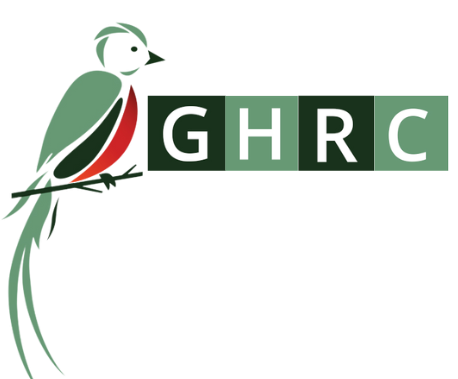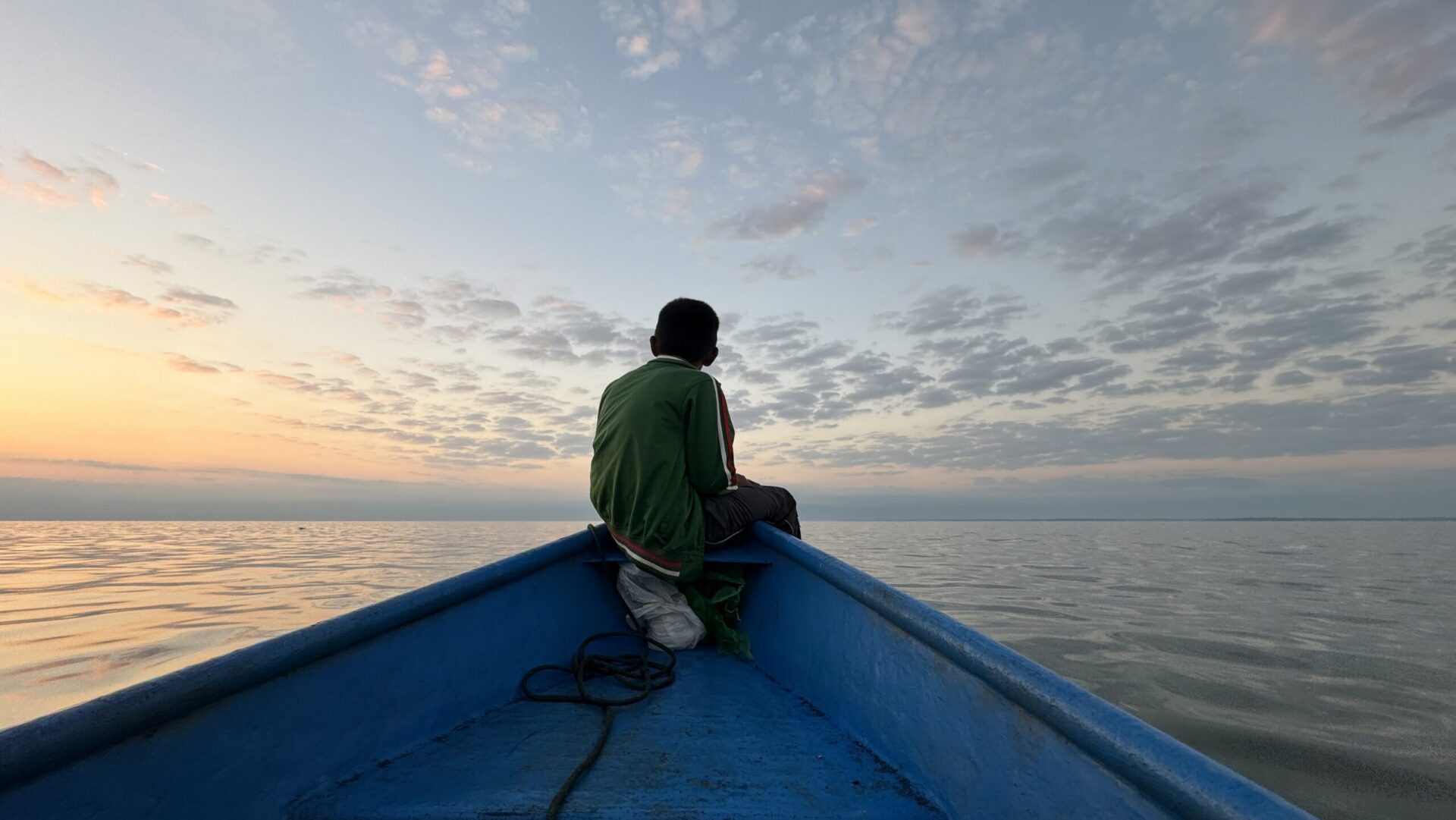Guatemala’s Independence Month Marked by Disillusion
On September 12, protesters marched through Guatemala in rejection of upcoming independence day celebrations. Under the slogan, “independence for who,” the united group of Indigenous Authorities, communities in resistance, students, and human rights activists spoke out against the last 201 years of slavery, misery, and impovershment.
The group convened in the Constitutional Plaza and demanded that the government end the criminalization of Indigenous leaders, journalists, judges, and prosecutors. Echoing previous protests, the group once more called for the resignation of President Giammattei and Attorney General Consuelo Porras, who they blame for piloting the country’s nosedive into corruption and impunity.
One of the Last Independent Judges Closer to Losing His Immunity
The case against internationally recognized Judge Miguel Ángel Gálvez continued this month. On September 19, Gálvez appeared in a public hearing before the Constitutional Court (CC) to appeal a July 15 decision by the Supreme Court review and possibly remove his judicial immunity. He faces a criminal complaint from head of the Foundation Against Terrorism (FCT) Ricardo Méndez Ruiz, and is accused of abuse of authority, breach of duties, prevarication, and illegal arrests with aggravating circumstances on an ongoing basis.
This complaint was filed in May, just five days after Judge Gálvez ruled to send nine retired military and police officers to trial for illegal detention, torture, murder and forced disappearance of more than 195 people between 1983 and 1985 in what is referred to as the “Death Squad Dossier” case. Since his ruling–in addition to these legal complaints–Gálvez has been a target of defamation campaigns and numerous death threats via telefone. In response to these threats, the Inter-American Court on Human Rights ratified provisional measures in favor of Judge Miguel Ángel Gálvez. It ordered the state of Guatemala to comply with an earlier ruling and “maintain the measures and security plan for Judge Gálvez … and his nuclear family.” The State of Guatemala has until November 21 to respond to the Inter-American Court and demonstrate its compliance with the resolution.
Ixil Authorities Denounce Aggressions by the Municipality of Nebaj
On the morning of September 1, the municipality of Nebaj, Quiché, tried to evict the Ixil Indigenous Authorities from their headquarters. Since 2013, the Ixil Authorities or “Indigenous Mayors” of Nebaj have occupied an office in the municipality building, carrying out their essential work as Ancestral Authorities. Without directly communicating with the authorities, the municipality ordered their removal from the office to make room for alleged renovations to the building. When they refused, municipal employees and supporters of the mayor broke down the door, attacked several people inside, and accused them of being “guerrillas” and of “opposing development.” Several documents were stolen during the altercation; their whereabouts are unknown.
The eviction was suspended by an injunction granted by the local court in favor of the Indigenous authorities. The ancestral authority maintains that the aggression is part of a systematic attack that seeks to eliminate their role as authorities in the region. According to Indigenous Mayor Diego Santiago Ceto, the objective of the latest attack was “to weaken and disappear the figure of B’oq’ol Q’esal Tenam de Naab’a’,” or the “Council of Mayors of the People of Nebaj.” International accompaniment groups, led by GHRC, denounced this act of aggression, calling on the municipality to “restore access to their office so that they can continue their work, ensure the physical integrity of each and every one of its members, as well as safeguard all property and documentation within the office.”
EU Parliament Holds Public Hearing on Guatemala
The European Parliament Subcommittee on Human Rights addressed human rights violations committed by mining corporations in a public hearing held on September 5. Noting a deterioration of conditions in Guatemala since their last visit in 2018, members highlighted their concerns regarding the “criminalization, stigmatization, and violence” against human rights defenders, particularly against Indigenous land defenders. Members highlighted the case of El Estor, sharing their concerns about the aggressions committed against Indigenous leaders last year during the state of siege, as well as the continued terrorization and criminalization of the anti-mining movement.
Four experts spoke, including journalists Luis Solano and Carlos Choc; Director of Impunity Watch Marlies Stappers; and Judge Miguel Ángel Gálvez. All four testified to democratic backsliding in Guatemala, including attacks on the justice system, as well as human rights defenders. In the case of El Estor, Solano highlighted attacks being committed by both State and private entities, which he claimed, “show a pattern of how mines act in Guatemala.” Part of this pattern, as described by Choc, includes “the use of states of siege to control community resistance” and a “politicization of public institutions to favor mining companies.” Choc highlighted his own case, as he faces new charges for his work documenting protests that occurred last October. “I’m a journalist, not a criminal,” he explained. Sadly, he shared that he is one of over 30 people that have been criminalized in El Estor since 2018 for their work defending their ancestral land. Judge Gálvez concluded, connecting the attacks against him to broad based attacks against judicial independence in Guatemala. He asked for more action to be taken by the EU Parliament. Referencing the US State Department’s list of corrupt officials in Central America, he recommended that the EU “adopt something similar” to create consequences for high-level corruption and human rights violations. All four supported another visit from the committee to “see firsthand how much worse it has become in Guatemala.”
Case Against Chicoyoguito Defenders Suspended Again
On September 8, the case against 21 criminalized defenders from Chicoyoguito was suspended once more. After opening the first hearing in the public trial, Judge Walter Chen ruled to reschedule the hearing for January 23 of next year. Charged with aggravated usurpation, these 21 Q’eqchi defenders were arrested and sent to trial in June of 2021 for a demonstration related to their efforts to reclaim their land which was stolen over 50 years ago. The community explained, “We were looking to hold a peaceful demonstration in Cobán to demand that the State return the territory that was stripped from us 54 years ago, where Military Zone No. 21, today Creompaz, was installed.”
Currently, there is a criminal process underway against high-ranking military officials who during the internal war in Guatemala used this base as a clandestine detention and execution center. Between 2012 and 2015, the Forensic Anthropology Foundation of Guatemala (FAFG) carried out 14 exhumations on the site, uncovering the remains of 558 people. The FAFG confirmed that 128 bones belong to persons that were disappeared between 1981 and 1982 in connection with the Creompaz Case.
Leading up to the most recent hearing, the community released a statement, condemning the case against them as “a process of criminalization of social protest” and “an improper use of criminal law to prevent the continuation of protests and demonstrations.” GHRC accompanied the defenders to their hearing and spoke with their attorney Jovita Tzul. “It’s a clear strategy,” she explained in reference to the continuous suspensions in the case, continuing, “these kinds of delays are debilitating for communities and movements. It goes beyond basic judicial delays.”
Public Ministry Reopens Case Against Activists
On September 12, Nanci Sinto and Dulce Archila returned to the tribunal tower in Guatemala for another hearing on their case. Last June, Judge Wendy Coloma closed the criminal case against both activists, citing a lack of evidence presented by the Public Ministry. Both the Public Prosecutor’s Office and Congress, however, appealed the decision before the Third Chamber, which ruled to reopen the case. Now, the two activists could face house arrest or even time in pretrial detention.
Sinto and Archila are accused of “destruction of the cultural patrimony” for allegedly painting the side of the Congress building during a protest that occurred in November of 2020. Sinto’s attorney condemned the decision to reopen the case as criminalization.
Judge Rules to Drop Charges Against Journalist in El Estor
On September 13, Q’eqchi journalist Carlos Choc was freed of all charges against him. Accused of “incitement of a crime,” Choc faced a criminal complaint filed by thirteen police officers for his participation in an alleged altercation that occurred between police and anti-mining protesters in El Estor last October. Police claim that Choc and 12 others attacked them, however, video evidence reveals no such attack occurred. In fact, the Inter-American Commission on Human Rights condemned the police for “excessive use of force” against the protesters. Citing a lack of merit in the case, Judge Anibal Arteaga dismissed all charges against him.
As a journalist with the Prensa Comunitaria, Choc has faced years of criminalization and threats, particularly connected to his work investigating and reporting on the Fenix Mine in El Estor. In 2017, after documenting the death of Q’eqchi fisherman Carlos Chaaz–killed by police during a protest against the mine–Choc was forced to go into hiding. Frontline Defenders condemned this most recent case against him as another attempt to “criminalize the journalistic work of Carlos Ernesto Choc Chub and the work of Prensa Comunitaria.”
Following the verdict, Choc celebrated, saying, “Since January 2022 I have not been able to carry out my work as a journalist, nor move freely. I am very grateful to my lawyers.” Human rights groups welcomed the victory for freedom of the press in the wake of growing attacks against journalists. Natalie Southwick–Latin America Program Coordinator at the Committee to Protect Journalists–reflected on the criminalization of Choc and demanded that the Guatemalan government “stop treating community journalists like criminals for doing their job, and put an end to their campaign to intimidate and threaten the press.”

